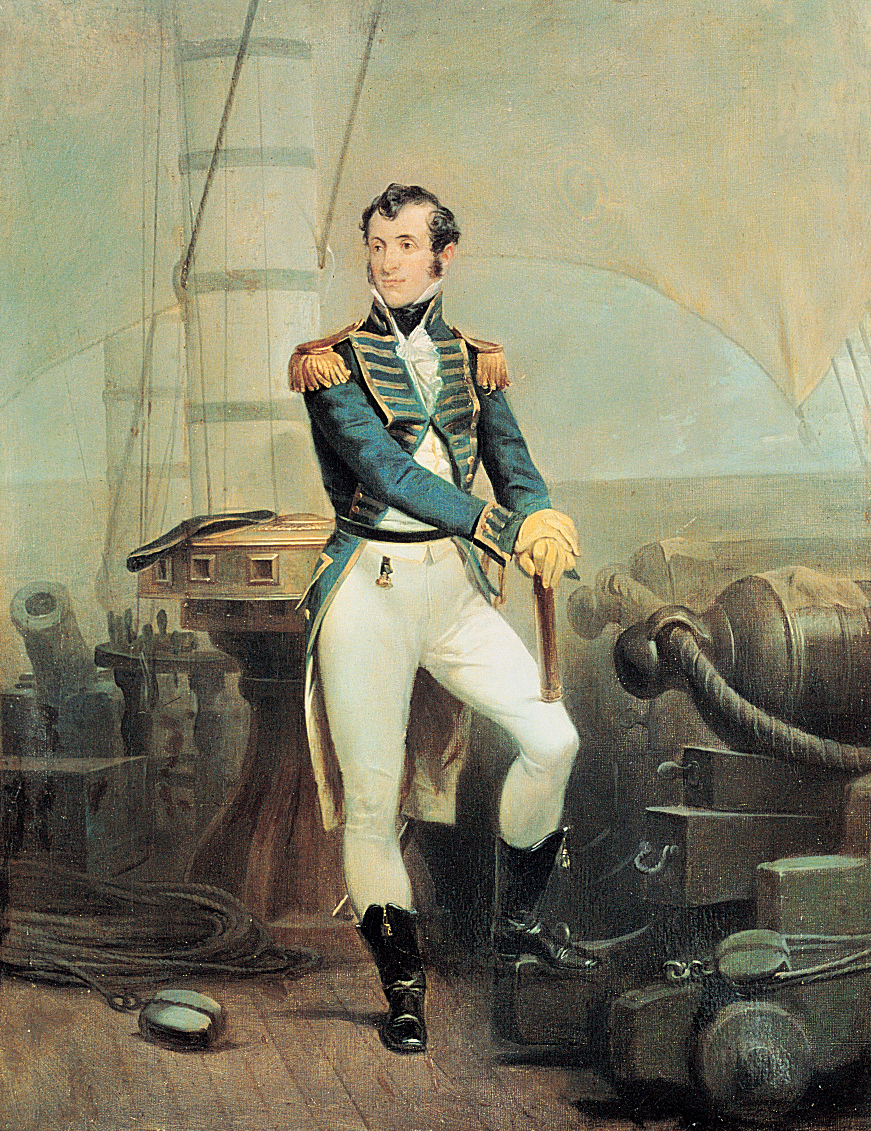Decatur, Stephen (1779-1820), was one of the most daring officers in the United States Navy during its early years. He is remembered for his toast: “Our country: In her intercourse with foreign nations may she always be right; but our country, right or wrong.” Handsome, brave, and honorable, Decatur enjoyed great popularity with his crews and with the public. He was one of a group of leaders who established the naval traditions of the United States. Others were John Barry, John Paul Jones, David Porter, Oliver Hazard Perry, Thomas Macdonough, and Isaac Hull.

Decatur was born in a log cabin in Sinepuxent, Maryland, on Jan. 5, 1779. He made his first long voyage at the age of 8, when he went to France on a ship commanded by his father, a merchant captain. He became a midshipman in 1798 during the naval war with France and rose to lieutenant in 1799. Given command of the Enterprise during the war with Tripoli, he captured an enemy vessel that was renamed the Intrepid. In this ship he led a picked band into Tripoli Harbor on the night of Feb. 16, 1804, and set fire to the frigate Philadelphia, once commanded by his father, which the Tripoli pirates had captured. Not a man was killed and only one was wounded. The English Admiral Horatio Nelson is reported to have called this exploit “the most bold and daring act of the age.” Because of it, Decatur won a sword from Congress and a captaincy when he was only 25.
Early in the War of 1812, Decatur commanded the U.S. frigate United States and captured the British frigate Macedonian with little harm to his ship and crew. In 1813, he commanded a squadron of ships in New York, which the British had blockaded in Long Island Sound. Decatur tried to run the blockade in the President early in 1815, but his ship struck the sand bar at Sandy Hook and was damaged. He was forced into a fight against heavy odds, was wounded, and surrendered. The British took him prisoner but soon released him.
After the war, Decatur led a squadron against the Barbary States of North Africa, which included most of present-day Algeria, Libya, Morocco, and Tunisia. Ships from the Barbary States often attacked vessels of other nations in the Mediterranean Sea. Decatur forced the Barbary rulers to release U.S. ships and prisoners and to stop interfering with U.S. vessels. On his return, he became a Navy commissioner. Suspended Commodore James Barron challenged Decatur to a duel in 1820 after Decatur, as a member of a military court, had ruled against Barron. Barron accused Decatur and other officers of persecuting him. Decatur was killed by the commodore near Bladensburg, Maryland. He died on March 22, 1820.
